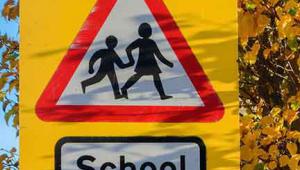10 September 2010
The rapidly expanding school academies programme has improved standards of education, the government’s spending watchdog has said, but its impact on the poorest pupils is diminishing.
The National Audit Office also cautioned that past successes did not mean the scheme would continue to perform well in the future, as its remit has widened dramatically under the new government.An NAO report published on September 10 found that some academies had difficulties balancing their books, and scaling up the scheme increased the risks to value for money.
NAO head Amyas Morse said that overall many of the 203 academies open at the end of August this year were ‘performing impressively’, with GCSE pass rates improving faster than the national average.
But, he added: ‘It cannot be assumed that academies’ performance to date is an accurate predictor of how the model will perform when generalised more widely. Existing academies have been primarily about school improvement in deprived areas, while new academies will often be operating in very different settings.’
The proportion of academy pupils from deprived backgrounds was falling, the watchdog found, while the gap in exam results between the poorest and other pupils was widening. The NAO concluded that better-off children benefited more quickly when an academy raised standards.
The report also called on ministers to explain what the academies programme is now supposed to achieve. Although the scheme originally targeted struggling urban schools, this year 142 ‘outstanding’ institutions will become academies under Education Secretary Michael Gove’s reforms.
Public Accounts Committee chair Margaret Hodge said that when the PAC takes evidence on academies next month it would want to be assured that sound financial management was in place.
‘The Department [for Education] faces major challenges as it takes over from local government the responsibility for directly funding many more schools,’ she said.
‘We will want to know that it has the capacity to meet these challenges. It is telling, for example, that they have still not been able to collect some of the substantial sums of money originally promised by academy sponsors.
‘Following the recent changes to open up the [academies] programme to high-performing schools, it is unclear what the objectives of an expanded academies programme are. My committee will expect these objectives to be clearly spelt out.’
Christine Blower, general secretary of the National Union of Teachers, said: ‘When reading this report the phrase “I told you so” springs to mind.
‘This provides yet further evidence that the fragmentation of the education system simply benefits those who are already advantaged.
‘Taking schools out of the local authority family of schools will always lead to problems, particularly for those pupils who are in need of additional help and support.’



















